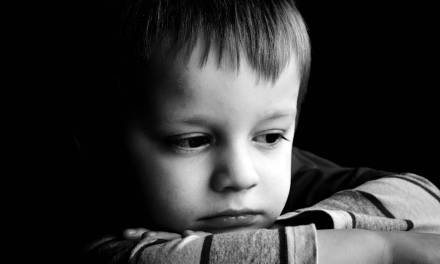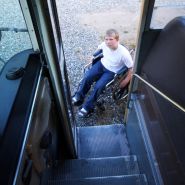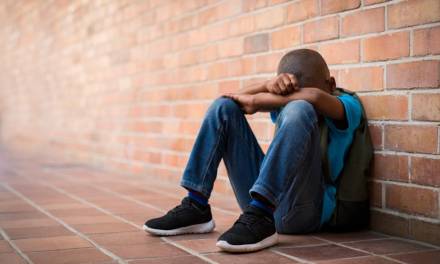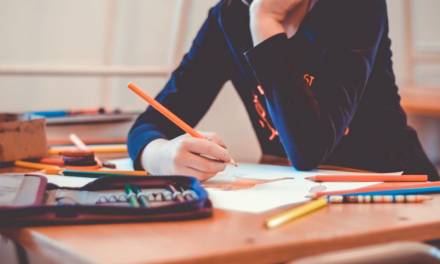School phobia even in pre-Covid times is a very real issue. The causes of which could increase during the Covid-19 pandemic.
Not only this but Covid-19 has increased apprehension in the education setting. Children of key workers as well as vulnerable children are still expected to attend. But in reality only 5% of vulnerable children have actually been attending.
School phobia can be caused by a number of issues. The anxieties of parents, teachers and wider community will also have a substantial effect on parents. How will this all fit together and what is the Education Minister trying to do about it? This blog post tries to explain.
What is school phobia?
According to Leah Davies, “School phobia, school avoidance and school refusal are terms that describe an anxiety disorder in children who have an irrational persistent fear of going to school. Their behaviour is different from children who are truant and express no apprehension about missing school.
“School phobic children are often insecure, sensitive and do not know how to cope with their emotions. They appear anxious and may become physically ill at the thought of attending school.”
What causes a child to be school phobic?
School phobia may be caused by the following home issues. There are also further issues that may be caused in a school setting, such as consistent bullying or loneliness:
- Experiencing a family change (e.g moving, illness, separation, death, depression or financial problems)
- A long-term absence from school
- Enjoying a parent’s undivided attention whilst not in school
- Being allowed to enjoy their own time (e.g. watching TV, video games) instead of completing school work
- Having an over-protective parents who believes school may be ‘harmful’
- Be apprehensive of an impeding tragedy at home
- Fear an adult at home might hurt a family member when the child is at school
Most, if not all of these issues, has been mentioned as a consequence of Covid-19 and/or the lockdown. This has caused concern that school phobia could increase both in the current climate and in the long term.
The current situation is also worsened by parents, perhaps worried about the effects of the illness on themselves, friends or relatives – may be reluctant to send the child to school.
How is this apprehension linked and what do MP’s believe action therefore needs to be taken to improve the situation?
What has Covid-19 done to apprehension levels?
Ultimately, apprehension about going to school has increased. It is such an issue in fact that the Education Minister spent much of her briefing on Wednesday discussion the lack of turnout in schools, as well as a lack of PPE, testing and potential for social distancing in the sector.
This apprehension is not just being felt by children – but by parents and the organisations themselves. Many provisions have subsequently been forced to close due to guidance on social distancing – putting vulnerable children at increased risk.
At the Education Select Committee meeting, one MP stated, “Given that many children in special education are often vulnerable with underlying health conditions would you say it is essential that teachers have the same access to testing as the NHS?”. Fears that schools could become a hotspot for infection spread was one of the reasons schools closed to all but children of key workers and vulnerable pupils.
However, the subsequent poor turnout and concerns over health. Has prompted a series of questions on testing, PPE and the overall opening procedure of these schools. Here is what the Education Minister, Vicky Ford, had to say.
You can watch the Education Select Committee online meeting here.
What did the Education Minister say on testing?
We are working to make sure that key workers who need the test, get a test. Our top priority is people working in residential settings – children’s homes, residential schools and social workers who are on the front line. The list of who and how people should get tests is being updated all the time. As more schools open we’re working to get more teachers tested that are on the front line. One of the top priorities for testing of key workers is to make sure there are enough staff available and not self-isolating so that they can carry on their vital job.
At the moment the priority is for staff that are on the front line. At the moment, with schools not open to all pupils, and as this increases we will increase the ability for teachers to get the testing.
(When asked about special educational needs settings) Where they need a test in order to make sure their staff get back to the frontline and are protected by the test, then they can get it. The local responses have the ability to the do that and we’ve always put special schools at the top of the list, especially the residential special schools.
On Thursday, the Government announced free testing for school staff.
What the Education Minister said on PPE?
Another raise to reduce apprehension among children, parents and teachers is PPE. On which, Ford explained:
We’ve been working very closely with Public Health England and with the Department for Health, and I have indeed been sitting on the inter-ministerial groups discussing health matters including PPE. We absolutely prioritise making sure PPE is available for those that need it most and that especially is in residential settings such as residential special schools or colleges, fostering households and children’s homes – because in a day school you don’t expect a child with Covid (or symptoms) to be in the setting, they should be self-isolating. We’ve also prioritised getting PPE for social care / social workers. Children’s social workers are an absolutely vital part of our emergency frontline and in particularly those who are going to be doing case work in other people’s homes.
As regarding the very specific point of special schools and was there a difference between the guidance that was being given for procedures taking place in clinical settings versus a school setting, this is a question for children who may have very serious disabilities. It was a question of if there was aerosol generated procedures or high levels of bodily fluid involved with the procedure, should PPE be worn? Public Health England (PHE) updated their advice on this. There should be no difference if a clinical procedure has taken place in the specialist schools.
Later she added:
I can understand parents (who are key workers) would be reticent to send their children to school given the fact that we are working online in parliament, keeping the social distancing going – people are observing the social distancing in supermarket queues, and yet it can’t be guaranteed in a school setting. It is very, very difficult indeed. We know that about half the staff that are currently working in schools are not just teachers (i.e. teaching assistants, cleaners, caretakers etc), so we are certain that PPE is available where it is needed within those school settings. Can we get the message out to parents, if all that is in place that schools will be a safe place to go and therefore (hopefully) we will get the youngsters that need to be there.
What has been said about schools that have closed or are considering closing?
The law also makes reference to ‘reasonable endeavours‘ to ensure an education provision is available and the Education Minister had her say on this too. This concerns children on EHC Plans that have been identified as vulnerable, many of which have traditionally been based in an AP. However due to the decrease in numbers, local authorities may be expected to find another suitable location for these children to be educated.
In terms of the change in the law about the statutory entitlement for EHC Plans, there is a concern that for children with disabilities, they need to wait a little longer for assessment. We’ve got to make sure that the change in the law regulation is for a shorter period as possible and we want to make sure the councils do endeavour to still do those plans, but we also know that the educational psychologists are really important for providing that support. (It is essential we can provide) face-to-face support for children who may be grieving and children who may have mental health issues.
Alternative Provision (AP) settings are under enormous pressure. We know that these are very vulnerable young people and a lot of them are Year 11’s who would have been very focused on their exams. One of the things that has been helpful in this setting is dialogue between AP leaders; they’ve been really good at giving advice, particularly to support the Year 11’s, and how we can give them the best form of catch-up later on when we open. AP attendance was higher than in any other sector of education. AP leaders have their eye on young people that are not in the setting and we’re absolutely safeguarding each one.
She added:
This emergency legislation is only for the limited period of time and for the shortest period of time and will be under reviews. I want to get back to normality as quickly as possible. The plan for children with special educational needs are absolutely at the forefront of my mind, and everyone’s mind in the department. Making sure that the can access the schools if they need to, every single school and every single local authority must risk assess each individual. We are putting in support from the centre, through local intervention teams into local authorities to help them at this time.
How has the Education sector been assessing anxiety?
The Department for Education also acknowledges the threat of the pandemic on children’s mental health generally.
We’ve been working with the Department for Health and others on mental health. There are a lot of good organisations putting more resources into mental health. The Mental Health Trust has now started a 24/7 helpline for those who urgently need mental health support. We have published advice on mental health provision and guidance. The Oak Academy curriculum also has a section on wellbeing as well as other parts of the curriculum.
How can EDLounge help children with school phobia and other mental health issues?
Our virtual classroom element can be used to help any learner attend a bespoke, online classroom. It helps students who are unable to attend education reach their goal alongside e-learning aspects.
EDClass+ includes 11,000 lessons in a wide range of subjects. Safeguarding is ensured by alert mechanisms, instant chat, video accessibility and eyes-on learning.
Further mental health lessons are available to help inform and support students.
For more information on the groups we are suitable for, click here or call 01909 568 338. For the 2019 Ofsted report click here.










